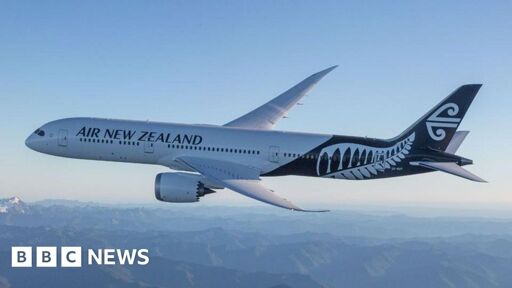Air New Zealand has abandoned a 2030 goal to cut its carbon emissions, blaming difficulties securing more efficient planes and sustainable jet fuel.
The move makes it the first major carrier to back away from such a climate target.
The airline added it is working on a new short-term target and it remains committed to an industry-wide goal of achieving net zero emissions by 2050.
The aviation industry is estimated to produce around 2% of global carbon dioxide emissions, which airlines have been trying to reduce with measures including replacing older aircraft and using fuel from renewable sources.
How much better is biofuel than fossil CO2-wise, if you need to cut down forests for arable land?
A very good question.
It is a very common misconception that trees and plants just always absorb CO2. The Carbon © in CO2 does not just disappear when plants produce Oxygen (O2). Plants use it as material to grow themselves and their fruits. Once they are fully grown, they don’t really absorb any more. So if you burn a tree in a fireplace and grow a new tree in its place, the new tree will eventually re-capture all the CO2 burning the wood released as it grows. This works even better with fast growing plants used for biofuel. The CO2 released by burning biofuel is re-captured when you grow more plants to make more biofuel.
So chopping down a forest to create fields is bad in the short term since it releases and does not recapture the CO2 from the trees, but is sustainable in the long term since you “recycle” the same Carbon.



